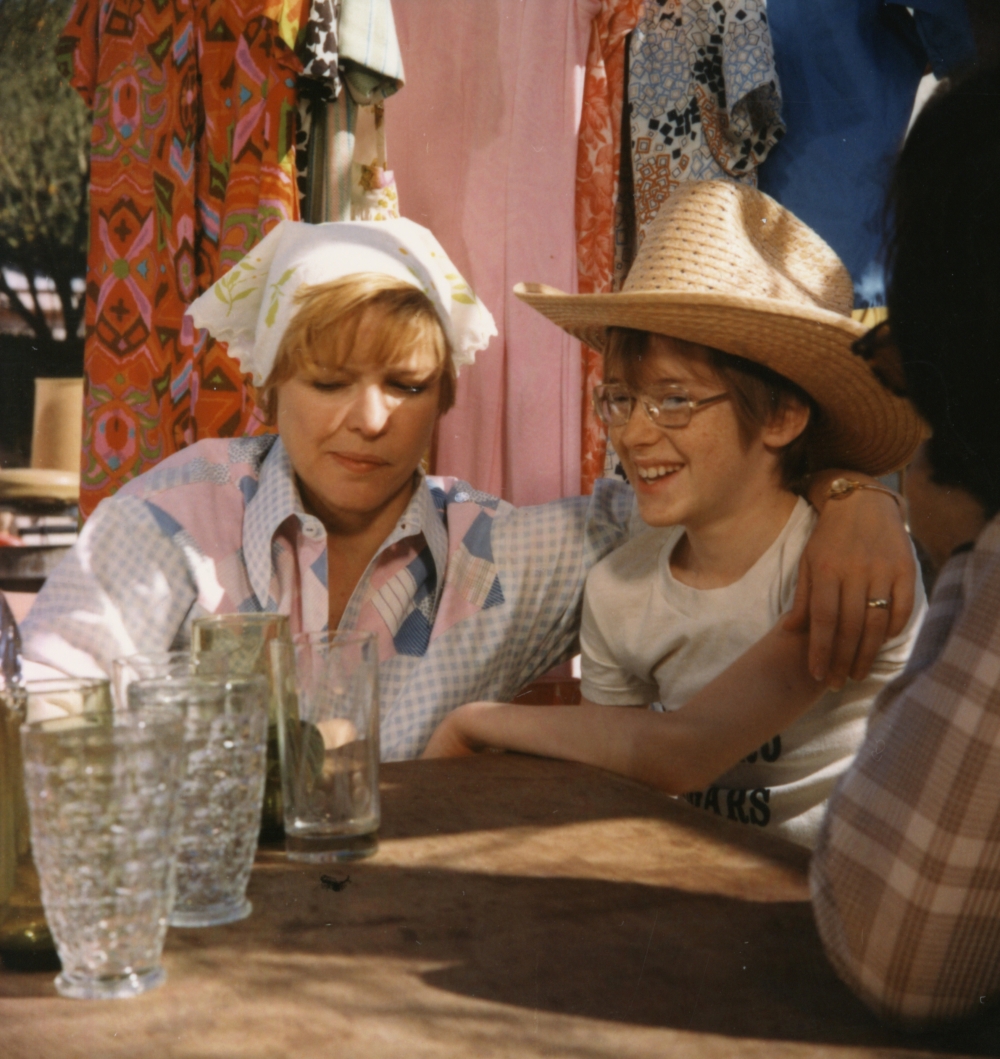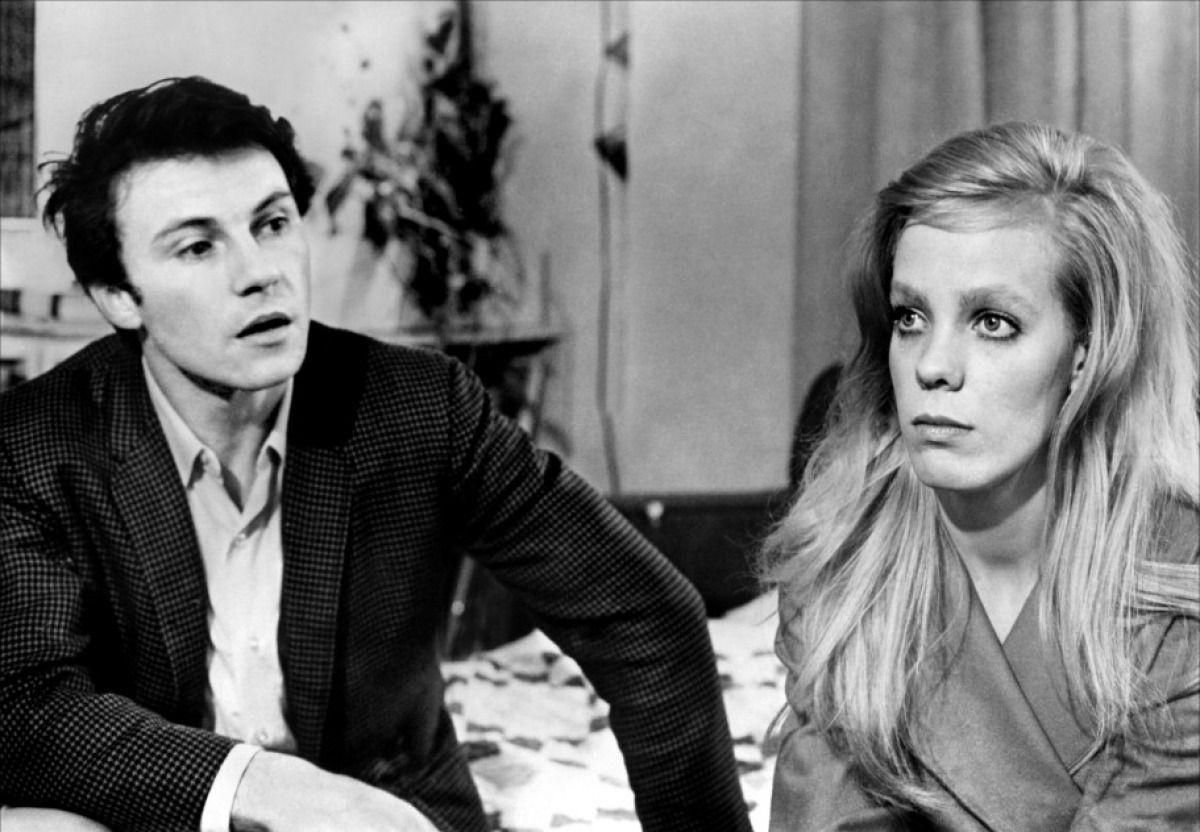DVD: Martin Scorsese - Two Early Films | reviews, news & interviews
DVD: Martin Scorsese - Two Early Films
DVD: Martin Scorsese - Two Early Films
An Oscar-winning detour into feminism, and a first bulletin from Little Italy

Alice Doesn’t Live Here Any More was Ellen Burstyn’s baby. Determined to use her clout after The Exorcist to make a film from a woman’s viewpoint, she offered Robert Getchell’s script to a director who confessed he knew nothing about women. “But,” Martin Scorsese told her, “I’d like to know.”
Alice is the odd one out between Mean Streets (1973) and Taxi Driver (1976): Scorsese’s game attempt at both a studio film and a “women’s picture”. But its first five minutes couldn’t be anyone else then: a prologue in a Technicolor-red, Wizard of Oz dream of childhood, where eight-year-old Alice scuffs and swears at her life’s limits; then the exultant jolt of Mott the Hoople’s “All the Way from Memphis”, heard soaring above suburban New Mexico roofs, from where Scorsese’s camera dives down to the record-player of adult, married Alice’s precocious 11-year-old, Tommy (Alfred Lutter, pictured below with Burstyn).
 Alice (Burstyn) is stuck in a beartrap of a marriage to short-tempered trucker Donald (Billy Graham Bush). Yet the film’s most tenderly true moment is when he, baffled by her tears in bed, turns over to hold her, and they cling, each better than no one.
Alice (Burstyn) is stuck in a beartrap of a marriage to short-tempered trucker Donald (Billy Graham Bush). Yet the film’s most tenderly true moment is when he, baffled by her tears in bed, turns over to hold her, and they cling, each better than no one.
Still, the trap is sprung, and Alice and Tommy head out on the road, where Alice hesitantly resumes her childhood dream of singing, but mostly works at a diner, while sampling Kris Kristofferson and Harvey Keitel’s radically different romantic charms.
Burstyn wanted the era’s feminist awakening refracted through Alice. She’s a transitional heroine, wisecracking with her kid like Bacall to Bogart, but quick to weep in frustration or, as Keitel bulls raging towards the genuinely terrified Burstyn, fear. A pioneer character whose own boldness scares her, Alice won Burstyn the Best Actress Oscar.
Everyone is usefully out of their element: Scorsese in the Southwestern, big-hatted suburbs suggests Woody Allen’s LA fiasco in Annie Hall. The film’s parts don’t quite fit, melodrama and naturalism, rock and country, women and men taking a wary, sometimes clumsy dance, but mostly connecting. The cameoing Keitel and Jodie Foster continued into Taxi Driver. This feminine hit proved Scorsese’s professionalism, and permitted that masculine horror show.
 The second new Scorsese reissue from the BFI is his 1968 feature debut, Who’s That Knocking at My Door. It’s partly a Mean Streets rough draft, the director describing it in his commentary as showing “the down days” of the later film’s Little Italy, “where nothing ever happens”. Taking his own Mean Streets dry run, Keitel, as Scorsese surrogate JR, meets cineaste cute with an unnamed girl (Zina Bethune, pictured above with Keitel), riffing on Westerns on the ferry. Trying to bridge the divide to her middle-class world, Little Italy’s brutal machismo leaves him repulsed by her having being raped.
The second new Scorsese reissue from the BFI is his 1968 feature debut, Who’s That Knocking at My Door. It’s partly a Mean Streets rough draft, the director describing it in his commentary as showing “the down days” of the later film’s Little Italy, “where nothing ever happens”. Taking his own Mean Streets dry run, Keitel, as Scorsese surrogate JR, meets cineaste cute with an unnamed girl (Zina Bethune, pictured above with Keitel), riffing on Westerns on the ferry. Trying to bridge the divide to her middle-class world, Little Italy’s brutal machismo leaves him repulsed by her having being raped.
Scorsese’s editor Thelma Schoonmaker is already on board, and pop, movement and montage push the lovers towards an extreme, sensual close-up of a kiss. In the most brilliant sequence, retained from 1964, slow-motion male horseplay mixes youthful exhilaration and bullying cruelty to the tribal Latin exotica of “El Watusi”.
Begun as a student film by the 23-year-old director, its title, form and ambition mutated during four years of sporadic shooting, while its boyish star Keitel visibly ages, mores change, and The Doors’ “The End” becomes available for a trippy sex scene shot to lure the 42nd Street crowd. Scorsese was in Amsterdam by then, trapped in Europe by the events of May ’68, and when his film opened, he was editing its cinematographer Michael Wadleigh’s directing debut, Woodstock. JR is left as locked up as Alice began, in the old world Scorsese was leaving, but kept in his cinema’s heart.
Both releases include partial commentaries from Scorsese and others, and short documentaries with good-value interviewees including Burstyn and Kristofferson, all taken from 2003 DVDs.
rating
Explore topics
Share this article
The future of Arts Journalism
You can stop theartsdesk.com closing!
We urgently need financing to survive. Our fundraising drive has thus far raised £49,000 but we need to reach £100,000 or we will be forced to close. Please contribute here: https://gofund.me/c3f6033d
And if you can forward this information to anyone who might assist, we’d be grateful.

Subscribe to theartsdesk.com
Thank you for continuing to read our work on theartsdesk.com. For unlimited access to every article in its entirety, including our archive of more than 15,000 pieces, we're asking for £5 per month or £40 per year. We feel it's a very good deal, and hope you do too.
To take a subscription now simply click here.
And if you're looking for that extra gift for a friend or family member, why not treat them to a theartsdesk.com gift subscription?
more Film
 One Battle After Another review - Paul Thomas Anderson satirises America's culture wars
Leonardo DiCaprio, Teyana Taylor, and Sean Penn star in a rollercoasting political thriller
One Battle After Another review - Paul Thomas Anderson satirises America's culture wars
Leonardo DiCaprio, Teyana Taylor, and Sean Penn star in a rollercoasting political thriller
 Steve review - educator in crisis
Cillian Murphy excels as a troubled headmaster working with delinquent boys
Steve review - educator in crisis
Cillian Murphy excels as a troubled headmaster working with delinquent boys
 Can I get a Witness? review - time to die before you get old
Ann Marie Fleming directs Sandra Oh in dystopian fantasy that fails to ignite
Can I get a Witness? review - time to die before you get old
Ann Marie Fleming directs Sandra Oh in dystopian fantasy that fails to ignite
 Happyend review - the kids are never alright
In this futuristic blackboard jungle everything is a bit too manicured
Happyend review - the kids are never alright
In this futuristic blackboard jungle everything is a bit too manicured
 Robert Redford (1936-2025)
The star was more admired within the screen trade than by the critics
Robert Redford (1936-2025)
The star was more admired within the screen trade than by the critics
 Blu-ray: The Sons of Great Bear
DEFA's first 'Red Western': a revisionist take on colonial expansion
Blu-ray: The Sons of Great Bear
DEFA's first 'Red Western': a revisionist take on colonial expansion
 Spinal Tap II: The End Continues review - comedy rock band fails to revive past glories
Belated satirical sequel runs out of gas
Spinal Tap II: The End Continues review - comedy rock band fails to revive past glories
Belated satirical sequel runs out of gas
 Downton Abbey: The Grand Finale review - an attemptedly elegiac final chapter haunted by its past
Noel Coward is a welcome visitor to the insular world of the hit series
Downton Abbey: The Grand Finale review - an attemptedly elegiac final chapter haunted by its past
Noel Coward is a welcome visitor to the insular world of the hit series
 Islands review - sunshine noir serves an ace
Sam Riley is the holiday resort tennis pro in over his head
Islands review - sunshine noir serves an ace
Sam Riley is the holiday resort tennis pro in over his head
 theartsdesk Q&A: actor Sam Riley on playing a washed-up loner in the thriller 'Islands'
The actor discusses his love of self-destructive characters and the problem with fame
theartsdesk Q&A: actor Sam Riley on playing a washed-up loner in the thriller 'Islands'
The actor discusses his love of self-destructive characters and the problem with fame
 Honey Don’t! review - film noir in the bright sun
A Coen brother with a blood-simple gumshoe caper
Honey Don’t! review - film noir in the bright sun
A Coen brother with a blood-simple gumshoe caper

Add comment